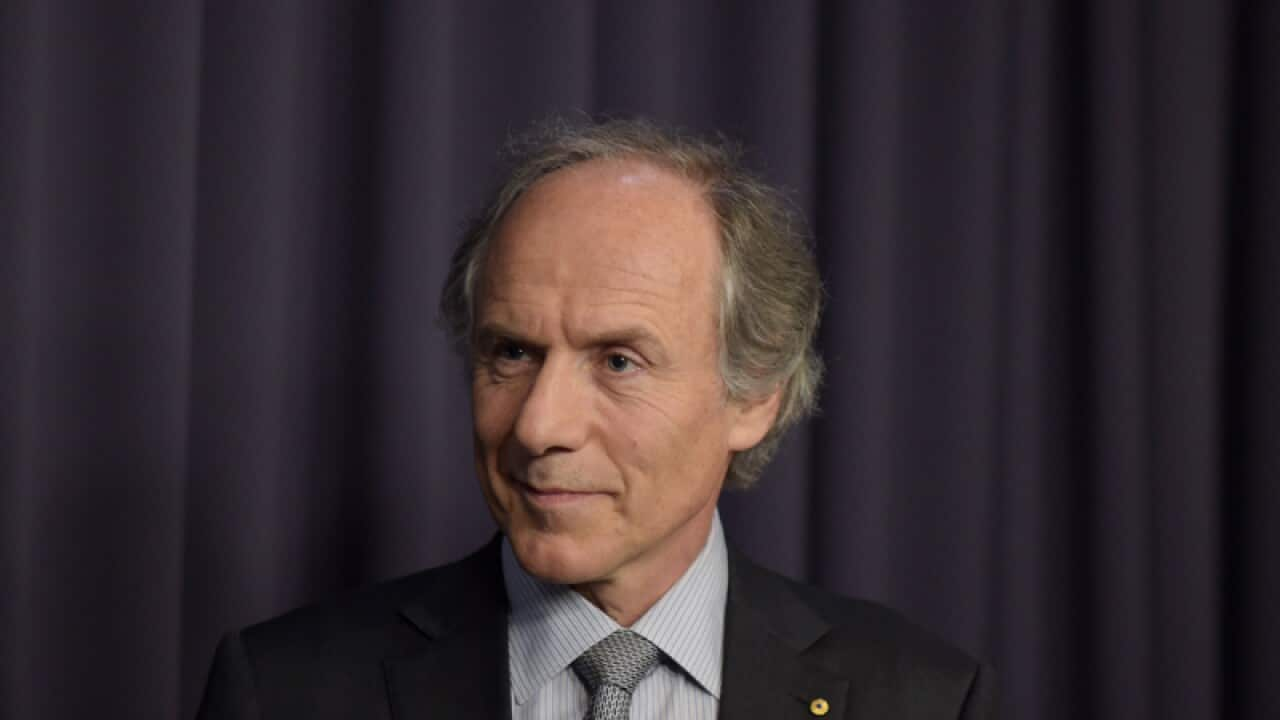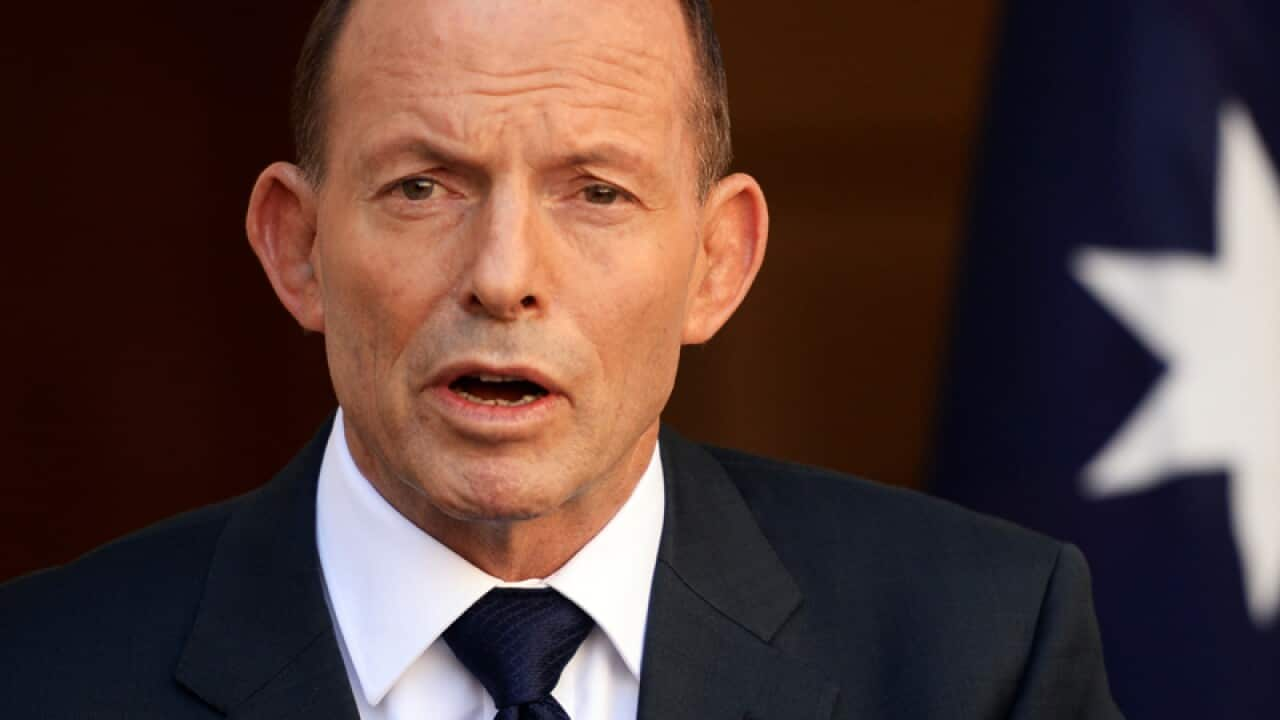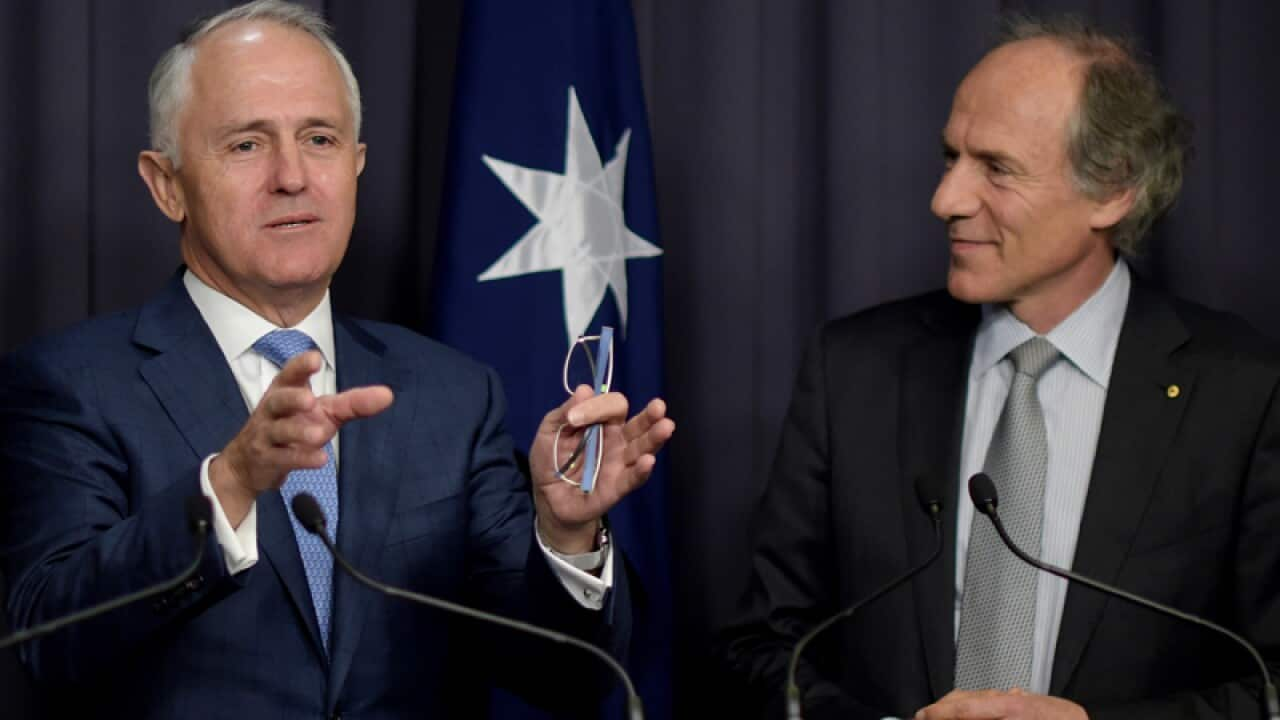If the ALP were in any doubt that Malcolm Turnbull is going to be hard to beat at the next election, this week demonstrated just how tough.
On Tuesday we had the comparison of the former Prime minister, Tony Abbott, giving a speech in London and the new Prime Minister Malcolm Turnbull announcing the new Chief Scientist, Alan Finkel.
The sight of Mr Abbott rehashing his old lines – “stopped the boats,” “have a go”, “socialism masquerading as environmentalism”, “royal commission into corrupt union bosses” – seemed as though it was beamed in from another age.
His lines about stopping asylum seekers at sea and turning them back might cheer the far-right brigade here and in the UK, but in reality the speech only lacked a conclusion which had him noting that “having pursued this line of reasoning, my own party saw fit to boot me out in record time. Thank you and good night (try the veal).”
Back in Australia, Turnbull kept on enjoying life as PM, and enjoying his good fortune at being PM after Tony Abbott – and thus being the beneficiary of all the relief and easy marking from the voting public such a position provides.
When the Prime Minister announced Alan Finkel as the new Chief Scientist, Finkel at the joint press conference responded to a question on climate change and coal exports by saying his “vision is for a country, society, a world where we don’t use any coal, oil, natural gas because we have zero emissions”.
For Tony Abbott, hearing such words would have been close to heresy (whatever the devout Catholic Abbott takes to be heresy, given in his London speech he dismissed the Christian ideal of “love they neighbour”).
But even for Malcolm Turnbull the issue was delicate.
Needing to keep his conservative rump on side, it was clear while Finkel was speaking that Turnbull felt the need to talk up the goodness of coal. He interrupted and made the point that “coal is a very important part, a very large part, the largest single part of the global energy mix and likely to remain that way for a very long time.”
He even used the standard climate-change skeptic line about coal being the great saviour of world poverty. He explained that “you have to remember that energy poverty is one of the big limits on global development in terms of achieving all of the development goals, alleviating hunger and promoting prosperity right around the world - energy is an absolute critical ingredient. So coal is going to play a big part in that”.
So far, so Abbott.
While Turnbull’s answer did not involve glib phrases, they conveyed essentially the same position on coal as would Abbott.
But they sounded better.
Turnbull loves to elucidate and explain things – he loves to suggest that he is explaining things that are “not perhaps well enough understood” (except by him). And he will baffle the listener with words and references.
So long have voters been used to being treated like particularly stupid children that hearing someone speak full sentences and even paragraphs allows Turnbull the luxury of being able to get away with nonsense.
Sure energy is critical to promoting poverty, but the issue in countries like India or those in Africa with extreme poverty isn’t a lack of coal but a lack of infrastructure.
Centralised electricity networks like we have in Australia are damn expensive to build and operate. All the coal in the world isn’t going to overcome that fact. And indeed decentralised electricity systems which depend on solar and wind energy are among those suggested as a more efficient way to solve the problem of energy poverty.
But while Turnbull did trot out (in his own way) the Abbott view on coal he also provided a vital addendum to his remarks which set him on a different planet to his predecessor.
Turnbull added, “having said that, the pace of technological development in the renewable space has been extraordinary.” He went on to explain the importance of renewable energy and indeed undid his own parroting of the energy-poverty argument by noting that for some remote areas, solar panels “could actually be and very often are much more cost-effective”.
READ MORE

Nuclear should be considered: Finkel
But this doesn’t make Turnbull any less of a politician than Abbott – indeed I would argue he is even better (at least as PM, if not as opposition leader).
For all his talk about being an agile government, the most potent aspect thus far is Turnbull’s agility at responding to questions by being able to contradict himself and his previously held views on a variety of issues and still end up sounding like he has provided a reasonable answer.
But it would be a mistake to say this agility is limited to words.
This week, rather without fanfare, the government announced that federal funds would be available for the Melbourne Metro rail tunnel. Under Abbott, for no logical reason, the funding was only to be available for the proposed East-West link.
The ideological desire only for roads was clearly idiotic to everyone except those simple few within the government who could repeatedly call Abbott the “infrastructure Prime Minister” without breaking into laughter.
Turnbull’s pivot on the issue sees the ALP stymied.
With Abbot, no matter how many times he talked of the roads of the 21st century, the ALP had a line to attack him on infrastructure – mostly because he talked only about the roads of the 21st century. But it’s hard to attack Turnbull on infrastructure if he is actually funding the works you think should be funded.
The old lines spouted by Abbott in London would have been music to the ALP’s ears – they were lines of a man whom the ALP could rely on. His relentless negativity and dependence on the same phrases meant not only was he predictable, but few voters wanted to listen to what he had to say.
But with Turnbull, the ALP has an opponent who is not only intelligent, but who seems doubly so by comparison with his predecessor. And he is showing the ability in his responses and his policy shifts to appear all things to all people – and for now, that is enough.
The hard work will come with the next budget and any actual election commitments. But till the end the ALP will struggle to lay a glove on the agile Turnbull.
Share




